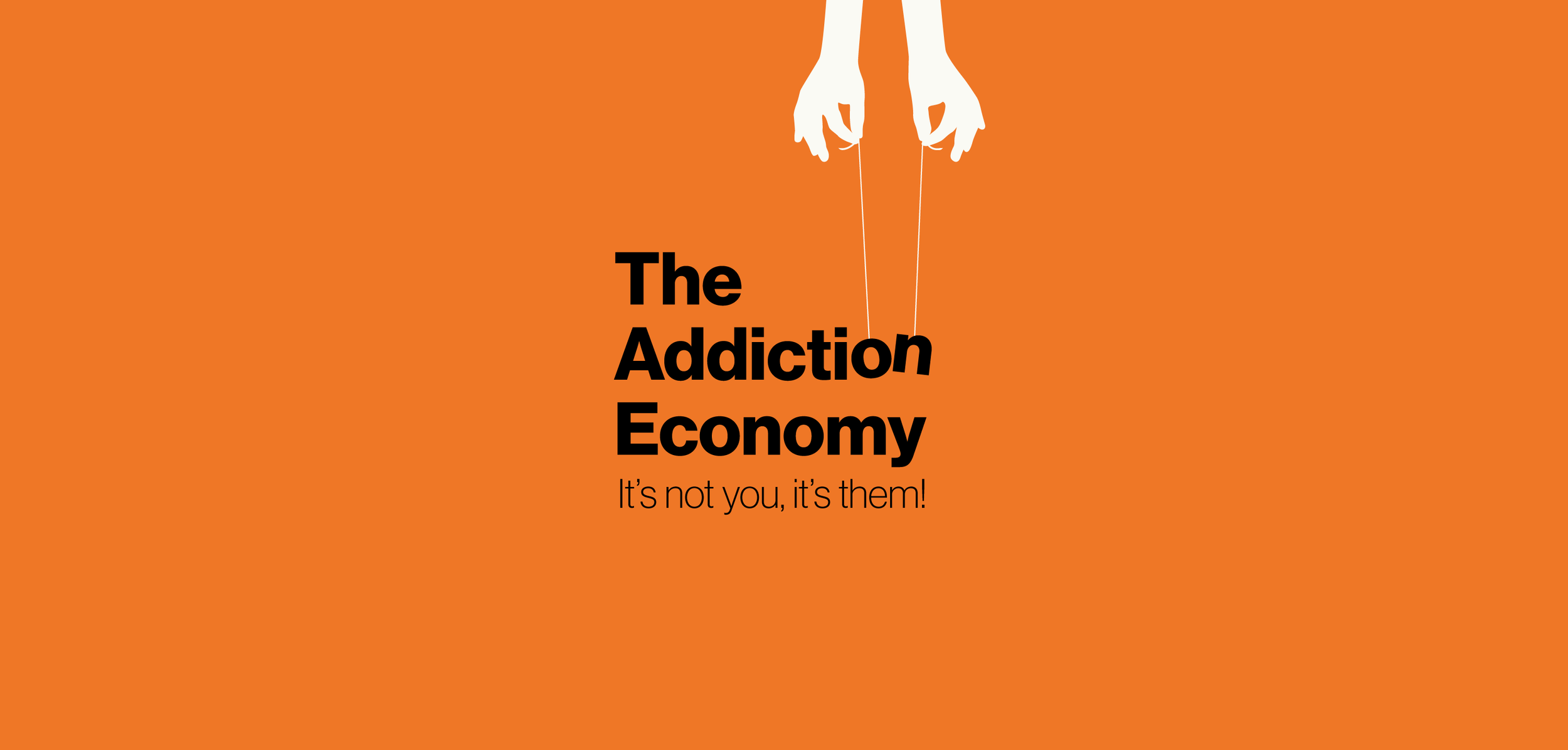
The biggest cause of preventable death the world has ever known—more than terrorism, wars, malaria, aids, murder and traffic accidents - is caused by 3 ordinary industries just trying to make a profit. Cigarettes, unhealthy food and alcohol kill 13 million people per year globally through a business model which erodes our ability to control our use of their products, beyond the point at which that harms us - the NHS definition of addiction.
Digital industries are following suit and doing to our minds, what these industries did to our bodies. Our research into social media, gambling, pornography, computer games and chatbots shows exactly the same playbook, with increasingly catastrophic results, particularly for the young.
Our research identified 3 drivers which create an Addiction Economy and the 3 strategies which maintain the industry grip and derail anything which threatens their profitability. We also identified what needs to be done and why on earth as a society we let it escalate to this level in the first place.
This will be published in a book for the general reader, which is coming out in 2026, and we are now developing our Manifesto for Change. To keep up-to-date, see below or check out Hilary Sutcliffe’s daily Addiction Economy Thought for The Day on LinkedIn.
News, Ideas and Insights
Here is our Draft Manifesto for Consultation - do contact us if you would like to discuss it in person
Joe and our work mentioned again on Rest is Politics re #addictionawarenessweek and the campaign '#letstalkaddiction
Our article was the front cover and lead article in the political paper The New World (formerly The New European)! Followed up by Joe’s appearance on the podcast of the two editors ‘The Two Matts’
This was the start of a conversation by email with Alastair Campbell himself and an opportunity for a TRIP programme commenting our work!
Does the school wellbeing curriculum help equip young people to navigate the addictive environment? No. A new approach is needed.
We think ‘inoculation’ may be a valuable strategy for public health and would like to try….see our proposal here
Our White Paper on The Addiction Economy and new graphic on the Drivers of the Addiction Economy and the Enablers which allow it to happen.
Consultation draft of article showing that the Gin Craze of the 17th Century was the first Addiction Economy and not the Cigarettes of the 20th Century
Our recommendations to Government ahead of the second reading of the Tobacco and Vapes bill on 26th Nov. Re-attach vaping to smoking for a nicotine-free future.
Our conversations with hospitals, GPs, schools, local authorities and parents have led to these 5 recommendations to 're-attach' vaping to smoking and help young people quit
Our innovative approach for a pupil-led approach to vaping discussions in schools - please let us know what you think.
The ways that social media companies try, and succeed, in addicting us and how regulators should respond.
Response to Martin Wolf letter suggesting to help the NHS Labour should regulate the harmful industries causing the problems which overwhelm it
Groundbreaking research into the causes of addiction and fundamental role of 5 key Economic Drivers.
Recommnndations from our research to support political responses to the harms caused by Ultra-Processed Foods.
AI and The Addiction Economy - a ‘lightening talk’ from Joe to members of the AI special interest group at the Royal Society of Arts in London.
Is our model of addiction disempowering or empowering? Our response to US blogger Michael Woudenberg who proposes that addiction is a personal choice and we are not the puppets of industry.
Check out this compelling film short by Joe Woof which brings the voices of young people into this debate and takes a critical look at the influence of industry and misinformation about harms.
A new nicotine economy is being deliberately created under the guise of helping smokers quit, with the aim that nicotine vapes and pouches become just another ‘acceptable’ societal addiction like alcohol and gambling. It must be stopped in its tracks.
Essential reading if you want to give up something this New Year! If not, this is simply a fascinating insight into addiction and un-addiction.
Vapes positioning as a lifestyle product was the key their success - Sunak has more to do to prevent them becoming a popular recreational addiction.
Why this chart is not as straight forward as it seems
Great infographic from Joe Woof on how companies take the money and the harms are inflicted on, and paid for, by the rest of us.
Taken from a great book called ‘Dark PR’ which gives a detailed and referenced catalogue of how these different frames have been used to subvert regulation
In our September 2023 recommendations Action on Recreational Vaping explores how young people are being drawn in to a new nicotine economy under the guise of helping smokers quit tobacco.

Addiction Economy Thought For Today
Check out Hilary’s daily post on LinkedIn. Here she shows the 6 Drivers of The Addiction Economy doing their thing as they happen, with stories from real people, media and academia.
(If you want to follow it, just go to Hilary’s Profile and click on the ‘bell’ on the top right corner and you will get a notification when it’s posted!)
Please don’t hesitate to comment, tag us or suggest thoughts via LinkedIn!
Below is the archive of posts which we started for the book, but are now transferring to our own database elsewhere on Mural as a research repository.
The concept was inspired by Seth Godin’s famous thoughtful daily email and follows on from Hilary’s previous two year LinkedIn Trust Thought For Today focusing on trustworthiness and trust in all aspects of life, politics and business.





























